Corrugated tin wall panels have become a go-to material for both residential and commercial projects due to their durability, versatility, and aesthetic appeal. Whether you’re looking to build a modern farmhouse, add rustic charm to your interior, or create a long-lasting, weather-resistant structure, corrugated tin panels offer an array of benefits. In this comprehensive guide, we will dive deep into corrugated tin wall panels, exploring their features, types, working process, installation, and maintenance. We’ll also provide a comparison of various metal powder models, key components, and help you find the right supplier. Let’s embark on a journey that will equip you with everything you need to know about these robust materials.
Overview
Corrugated tin wall panels are made from thin sheets of galvanized or coated steel that are shaped into a wavy or ridged pattern. These waves or “corrugations” add structural strength, allowing the material to withstand harsh environmental conditions like rain, wind, and snow. They are commonly used for roofing and wall cladding in homes, barns, industrial buildings, and even modern architectural designs.
With advancements in coating technology and color choices, corrugated tin panels offer both functional benefits and an aesthetic edge. They are often preferred for their rustic look and industrial charm, while also being highly resistant to corrosion, fire, and extreme weather.
Corrugated Tin Wall Panels Guide
Corrugated tin wall panels are available in different styles, finishes, and sizes, making them adaptable to various construction and design needs. Let’s break down the core aspects of these panels, from types to technical specifications.
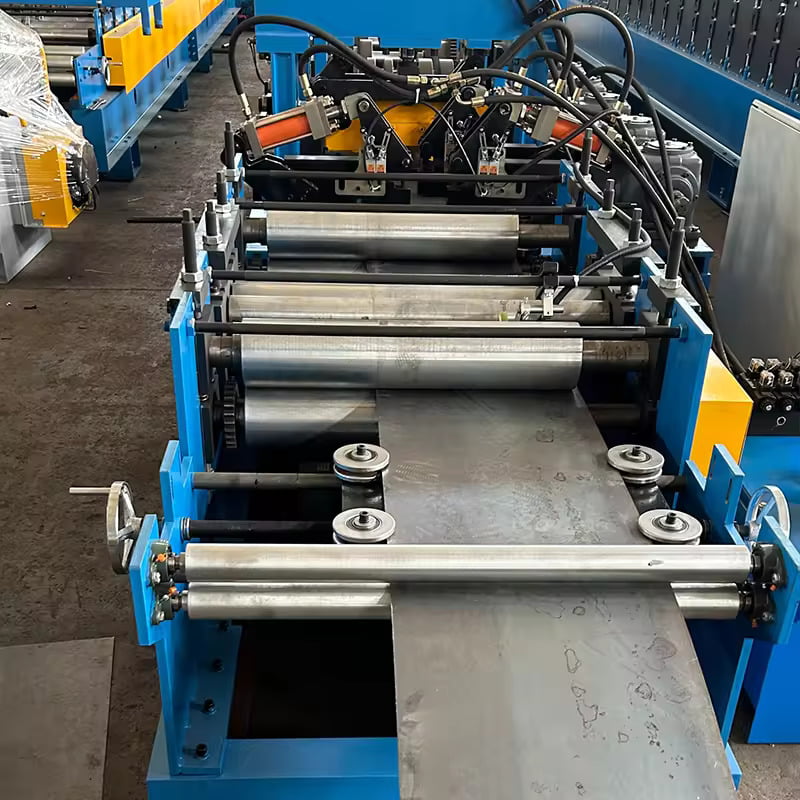
Types of Corrugated Tin Wall Panels
Here’s a detailed look at specific models of corrugated tin wall panels, each with its unique characteristics.
| মডেল | বর্ণনা | Size | Coating | অ্যাপ্লিকেশন |
|---|---|---|---|---|
| 1. Ultra Rib Panel | Known for its enhanced structural rigidity due to deeper and wider ribs. Excellent for industrial settings and heavy-duty outdoor installations. | 36” coverage width, ¾” rib height | Galvanized Steel | Ideal for warehouses and barns due to superior strength. |
| 2. EcoSteel 26 | A lightweight option perfect for residential wall cladding. Has a softer profile to offer a more elegant appearance. | 26” wide, ½” rib height | Pre-painted Steel | Homes, small commercial buildings, interior décor. |
| 3. Galvalume Master | This panel features a unique aluminum-zinc coating for added corrosion resistance, making it ideal for coastal environments. | 24” width, 1” rib height | Galvalume Coating | Coastal homes, seaside resorts, beach cabins. |
| 4. RusticWave Pro | Designed for rustic aesthetics with a natural weathered finish. Its finish develops a patina over time, enhancing its aged look. | 28” width, ¾” rib height | Pre-weathered Steel | Farmhouses, interior accent walls, outdoor pavilions. |
| 5. Titan Shield 20 | A heavy-gauge steel panel with advanced UV-resistant coating for maximum protection against fading and wear. | 20” width, 1½” rib height | PVDF Finish | Outdoor stadiums, sun-exposed areas, commercial exteriors. |
| 6. Alpine Corrugate | Perfect for high-altitude areas with extreme weather conditions. Reinforced with double coating for increased durability. | 22” width, 1¼” rib height | Zinc-Aluminum Finish | Mountain cabins, cold-weather facilities. |
| 7. MetroPanel X | A cost-effective, all-purpose panel with medium-depth corrugations. Widely used for residential and commercial roofing. | 36” width, 1” rib height | Hot-dipped Galvanized | Roofing and cladding for homes, stores, and sheds. |
| 8. OceanGuard Pro | Specialized for marine environments, with enhanced salt and moisture resistance. | 30” width, ¾” rib height | Marine-Grade Aluminum | Boathouses, piers, marine infrastructure. |
| 9. DesertShield 32 | Built for hot, dry climates with reflective coatings to reduce heat absorption, making it ideal for arid regions. | 32” width, ½” rib height | Reflective Coating | Desert homes, solar power plants, arid landscape designs. |
| 10. VintageCore | Offers an industrial look with a distressed surface, perfect for retro or minimalist designs. | 24” width, ¾” rib height | Corten Steel | Loft-style homes, art galleries, urban commercial spaces. |
How Corrugated Tin Wall Panels Work
The ridged design of corrugated tin wall panels isn’t just for looks; it plays a vital role in their strength and efficiency. Let’s explore how these panels work and their key benefits.
Function of Corrugated Tin Wall Panels
Corrugated tin wall panels function as both a protective barrier and a design element for buildings. The wavy pattern distributes the stress evenly, making the panels more resistant to bending or warping. Additionally, the material’s high tensile strength allows it to hold up under heavy loads and weather extremes.
Key Benefits:
- Strength: The corrugated shape increases the load-bearing capacity of the panels, making them stronger than flat metal sheets.
- Weather Resistance: Tin panels can endure snow, rain, wind, and UV exposure without corroding or degrading.
- Cost-Efficient: They are often more affordable compared to other wall-cladding materials like stone or brick.
- Aesthetic Appeal: With various finishes and textures available, they can complement both rustic and modern architecture.
- Lightweight: Despite their strength, corrugated panels are relatively light, reducing the structural load on buildings.
- সহজ স্থাপন: The lightweight design and overlapping structure allow for quick and easy installation, saving on labor costs.
Corrugated Tin Wall Panels Working Process
Installing corrugated tin wall panels is a straightforward process, but it involves a series of key steps to ensure proper functionality and longevity. Below is a breakdown of the working process from manufacturing to installation.
Manufacturing Process
- Material Selection: High-quality steel or aluminum sheets are selected based on the intended application (e.g., residential or industrial).
- Corrugation: The sheets are passed through rollers that create the signature ridged pattern, which increases their strength.
- Coating: The panels are coated with various finishes like galvanized, PVDF, or marine-grade coatings depending on the environment they’ll be used in.
- Cutting to Size: The panels are then cut to the required length and width.
- গুণমান নিয়ন্ত্রণ: The finished products are checked for uniformity, thickness, and coating integrity before being shipped.
স্থাপন প্রক্রিয়া
- Surface Preparation: Ensure the surface is flat and structurally sound. Frame structures, if necessary, are erected before installation.
- Panel Positioning: The panels are placed with an overlap to prevent water ingress.
- Fastening: Screws or fasteners are used to secure the panels to the wall or roof structure.
- Sealing: Additional weatherproofing elements like sealants may be applied at seams or edges to prevent leaks.
- Finishing Touches: Trims, caps, or corner pieces are added to give the installation a finished look.
| Key Components | Function |
|---|---|
| Corrugated Sheets | Primary cladding material providing strength and weather resistance. |
| Fasteners (Screws, Bolts) | Used to securely attach the panels to the structural frame or surface. |
| Sealants | Prevent water and moisture ingress at seams and overlaps. |
| Trims and Caps | Finishing elements that cover exposed edges and improve aesthetics. |
| Underlayment | Optional material for added insulation and moisture protection. |
-
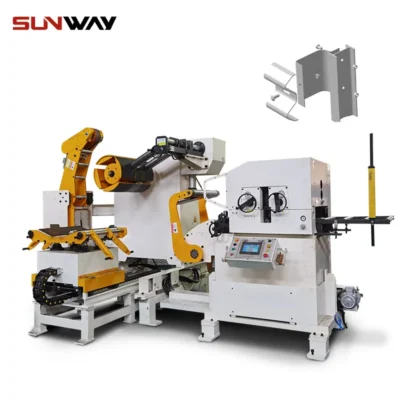 Highway Guardrail End Terminal Forming Machine
Highway Guardrail End Terminal Forming Machine -
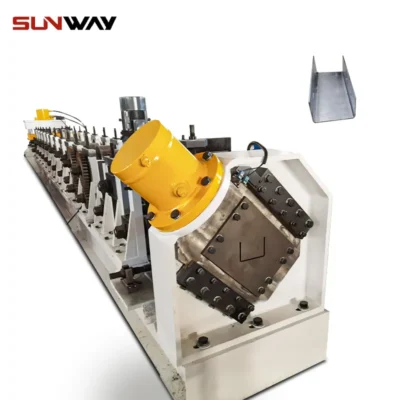 Highway U/C Post Roll Forming Machine
Highway U/C Post Roll Forming Machine -
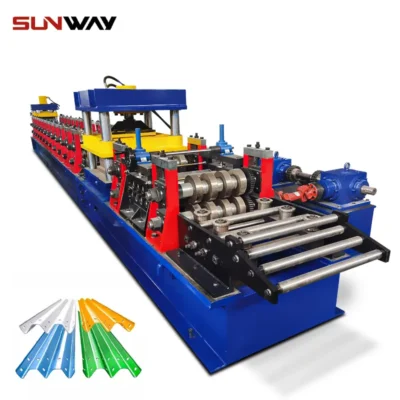 2 Waves Highway Guardrail Roll Forming Machine
2 Waves Highway Guardrail Roll Forming Machine -
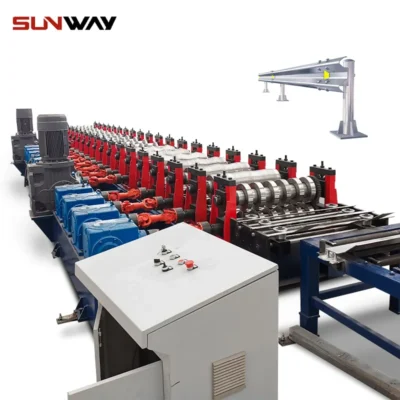 3 Waves Highway Guardrail Roll Forming Machine
3 Waves Highway Guardrail Roll Forming Machine -
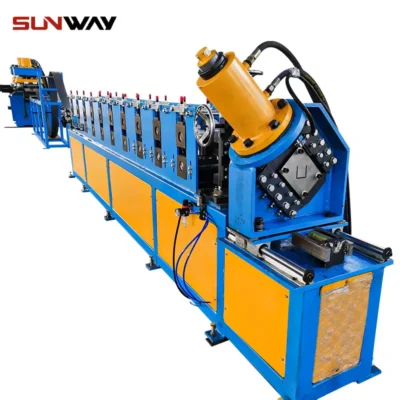 বৈদ্যুতিক মন্ত্রিসভা ফ্রেম রোল গঠনের মেশিন
বৈদ্যুতিক মন্ত্রিসভা ফ্রেম রোল গঠনের মেশিন -
 দিন রেল রোল ফর্মিং মেশিন
দিন রেল রোল ফর্মিং মেশিন -
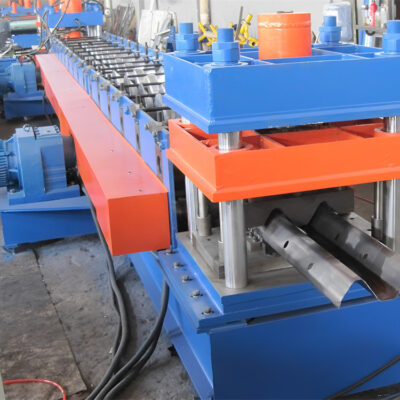 দুই তরঙ্গ হাইওয়ে গার্ডেল মেশিন
দুই তরঙ্গ হাইওয়ে গার্ডেল মেশিন -
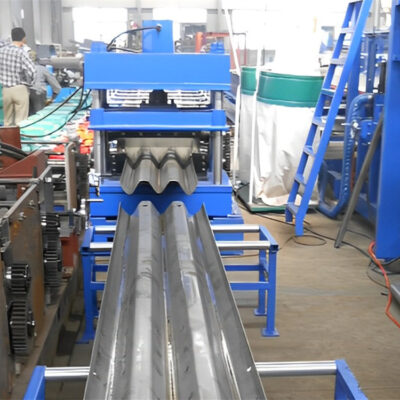 থ্রি ওয়েভ হাইওয়ে গার্ডেল মেশিন
থ্রি ওয়েভ হাইওয়ে গার্ডেল মেশিন -
 তারের মই রোল ফর্মিং মেশিন
তারের মই রোল ফর্মিং মেশিন
Performance and Efficiency of Corrugated Tin Wall Panels
How fast and efficiently these panels can be manufactured and installed plays a big role in construction timelines and cost. Below is an overview of performance parameters like machine speed and efficiency.
| Machine Speed | দক্ষতা | Comments |
|---|---|---|
| Up to 20 ft/min | 90% | Typical for high-speed manufacturing of standard panels. |
| 30 ft/min or more | 95%+ | Advanced machines for specialized or bulk orders. |
| Installation Speed | High | Quick installation time due to lightweight materials and simple fastening systems. |
Customizing Corrugated Tin Wall Panels: Mechanical Parameters and Options
Customizations are available to meet specific requirements, from the rib height to the coating thickness. Here are some of the customizable mechanical parameters.
| Parameter | Customizable Options | Impact on Functionality |
|---|---|---|
| Rib Height | ½”, ¾”, 1”, 1½” | Affects load-bearing capacity and overall strength of the panel. |
| Panel Width | 20”, 24”, 36” | Determines coverage area and installation time. |
| Coating Type | Galvanized, Pre-painted, Zinc-Aluminum, PVDF | Enhances corrosion resistance and aesthetic appeal. |
| Material Thickness | 0.018” to 0.040” | Thicker material increases durability but adds weight. |
| Finish | Smooth, Textured, Pre-weathered, Glossy | Influences the look and weathering properties of the panels. |
Applications of Corrugated Tin Wall Panels
Corrugated tin wall panels are incredibly versatile and can be used in a wide range of settings. Here are some typical applications.
| Application Area | Usage |
|---|---|
| Residential Homes | Wall cladding, interior feature walls, roofing, fencing. |
| বাণিজ্যিক ভবনসমূহ | Storefronts, interior partitions, and façades. |
| শিল্প স্থাপনা | Factories, warehouses, sheds, agricultural buildings like barns and silos. |
| Marine Environments | Coastal homes, piers, boathouses, and docks. |
| Agricultural | Barns, silos, farm equipment sheds, chicken coops. |
| Modern Architecture | Used for sleek, minimalist designs in urban lofts, offices, and commercial spaces. |
Installation, Operation, and Maintenance of Corrugated Tin Wall Panels
Proper installation and maintenance are crucial to ensuring the longevity of corrugated tin panels. Below is a guide on how to install, operate, and maintain these panels effectively.
| Task | Instructions |
|---|---|
| Installation | Use overlapping panels, fasten with appropriate screws, and apply weather sealants. |
| পরিচালনা | Ensure panels are regularly inspected for damage, rust, or loosening of fasteners. |
| Maintenance | Clean the surface with water and mild detergent to prevent debris buildup. |
| Repair | Replace damaged or rusted panels promptly to avoid further damage. |
Corrugated Tin Wall Panel Suppliers and Price Range
Finding the right supplier is essential for getting high-quality materials at a reasonable price. Here’s a list of popular suppliers and their price ranges for corrugated tin wall panels.
| Supplier | Location | Price Range (per sq. ft.) | Shipping Options |
|---|---|---|---|
| ABC Metal Roofing | USA | $2.50 – $4.00 | Nationwide |
| Corrugated Metals | USA/Canada | $2.00 – $3.50 | International |
| Global Roofing Supply | USA | $1.75 – $3.75 | Local Pickup/Delivery |
| ArcelorMittal | Global | $2.00 – $3.00 | International |
| SteelCorp | Australia | $2.50 – $4.25 | Nationwide |
How to Choose a Supplier for Corrugated Tin Wall Panels
Selecting the right supplier involves evaluating several key factors. Here’s a guide to help you make the right decision.
| কারণ | Considerations |
|---|---|
| Reputation | Look for suppliers with positive customer reviews and a history of reliable service. |
| Material Quality | Ensure the supplier offers high-quality steel or aluminum with the proper coatings. |
| Pricing | Compare prices among multiple suppliers, keeping in mind shipping and installation costs. |
| কাস্টমাইজেশন অপশন | Does the supplier offer a range of panel sizes, colors, and finishes? |
| Lead Time | Make sure the supplier can deliver within your project’s timeline. |
| Support and Warranty | Check if the supplier provides after-sales support and warranties on their products. |
Comparing Pros and Cons of Corrugated Tin Wall Panels
While corrugated tin wall panels are an excellent choice for many applications, they also come with their own set of advantages and limitations. Here’s a detailed comparison.
| Feature | Advantages | Limitations |
|---|---|---|
| স্থায়িত্ব | Extremely durable, resistant to weather and corrosion. | May rust if coating is compromised. |
| খরচ | Cost-effective compared to other materials like stone or wood. | Higher-grade coatings and custom options can increase costs. |
| Aesthetic Appeal | Wide range of finishes and colors available for customization. | Limited to industrial or rustic looks; not ideal for all designs. |
| Installation | Lightweight and easy to install, reducing labor costs. | Requires professional installation for large-scale projects. |
| Maintenance | Low-maintenance, requiring occasional cleaning. | May need occasional re-coating in harsh environments. |
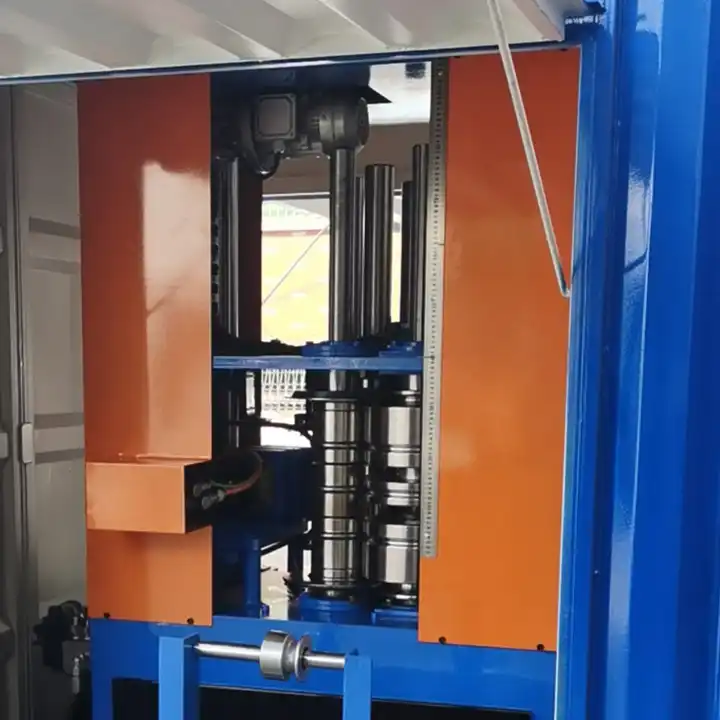
প্রায়শই জিজ্ঞাসিত প্রশ্ন (এফএকিউ)
| Question | Answer |
|---|---|
| What is the lifespan of corrugated tin wall panels? | With proper maintenance, they can last between 40-70 years, depending on the environment and coatings used. |
| Can corrugated tin panels be painted? | Yes, pre-painted options are available, and some types can be repainted as needed. |
| Do they provide good insulation? | On their own, no. Insulation should be added to improve thermal efficiency. |
| Are corrugated tin panels environmentally friendly? | Yes, they are often made from recyclable materials, making them a sustainable building option. |
| How do I prevent rust on corrugated tin panels? | Ensure proper coatings are applied, and regularly clean and inspect the panels to prevent rust formation. |
উপসংহার
Corrugated tin wall panels offer a perfect blend of strength, cost-efficiency, and aesthetic versatility. Whether you’re building a modern urban loft, a rustic farmhouse, or an industrial complex, these panels provide a long-lasting, weather-resistant solution that fits a range of architectural styles. Their ease of installation and low maintenance further make them a top choice for builders and DIY enthusiasts alike.
